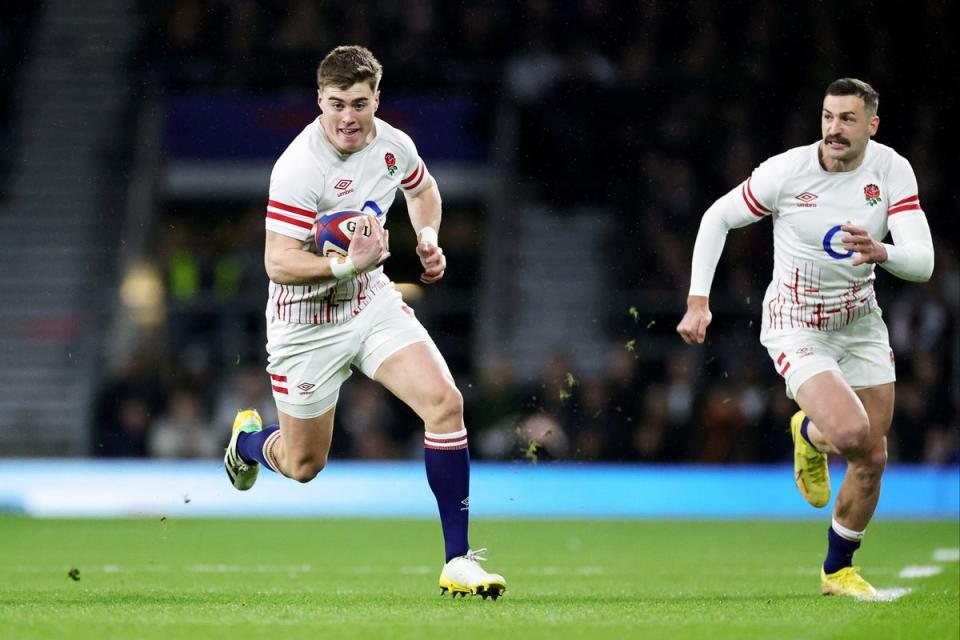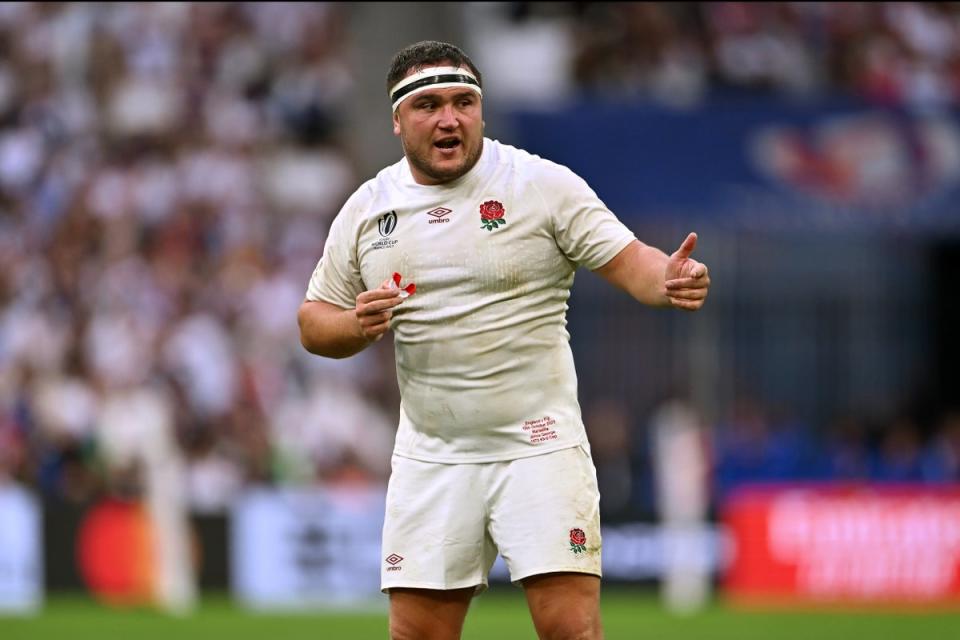Steve Borthwick gives nod to the future but England squad reveals true Six Nations intent

It was seemingly with some extra pep in his step that Steve Borthwick strode into Twickenham as he unveiled his Six Nations squad. Gone, seemingly, was the Borthwick of the World Cup, forging his siege mentality amid a closing of ranks and doors. So, too, was the firefighter who had been pressed into emergency duty ahead of this championship a year ago, uncertain and unsteady, and unable to enact immediate change. No, this was a slightly smilier, more open Borthwick, looking ahead with optimism, his feet now firmly under the table.
A telling comment came just a few moments into his opening address. “English rugby has turned a corner”, Borthwick declared, looking back on the pot-holed, pock-marked road he and his predecessor have travelled in the last two years and suggesting that smoother tarmac lay ahead.
It is a comment that requires some explaining. England’s long-time captain will be absent from this campaign and, it would seem, beyond. A number of other established individuals are similarly considering moves to France, while there is a brewing civil war over the shape of the domestic game as Championship clubs hint at rebellion. Why the certainty of plainer sailing to come?
“I think you’ve all seen that in terms of the positive nature of English rugby in terms of what we’ve seen so far this season,” Borthwick outlined. “I think we are seeing good attendances and atmospheres in grounds.

“I think we are seeing how competitive the clubs are in Europe. You look at the Premiership and there are maybe eight teams that can make the top four. The leverage on every game is huge. That’s important because every game then matters – that’s what happens at Test level. You have to be at your best every game.”
That competition for places is evidenced in a squad both built to win now and look to the future. Just 17 of those who were at the World Cup remain, but there has perhaps not been the significant cull that that headline number suggests. Billy Vunipola and Kyle Sinckler are two notable omissions, but each is thought to be considering an offer from across the Channel and have been short of top form.
Beyond them, Owen Farrell is absent, along with those now based in France and the three post-World Cup retirees (Courtney Lawes, Ben Youngs, Jonny May). Tom Curry, George Martin and Manu Tuilagi are among those injured who would have, Borthwick stressed, made the cut if fit.
With those unavailabilities considered, then, this squad naming represented an evolution rather than an epochal change. Other coaches might have looked beyond Dan Cole and Joe Marler, but Borthwick again underlined their value as steady scrum heads after their retention. Recalls for Henry Slade and Luke Cowan-Dickie are similarly a nod to a need for an experienced spine. Ben Spencer may not have spent as much time in white but the scrum-half’s return at the age of 31 is equally a move suggesting a desire to prioritise the present rather than the future.

Borthwick will recognise the opportunity that may be in front of England. Of the six nations naming squads this week, only Scotland appear settled – Italy are under a new coach; Wales, France and Ireland bedding in new captains. Borthwick has that same challenge but has solid foundations from the World Cup on which to build.
The newer blood flows largely through channels where England are in need of the fresh oxygen of youth. Out wide, Immanuel Feyi-Waboso, Tommy Freeman, Oscar Beard and Tom Roebuck all have the pace to thrive in attack and, perhaps crucially, Felix Jones’ defensive structure, which places an emphasis on acceleration and acuity in the outside channels. Back row trio Chandler Cunningham-South, Tom Pearson and Ethan Roots are in need of refinement but have the raw tools and work-rate to prosper at Test level.

“In terms of the development of the team, it’s important that we build on our game,” Borthwick said. “What we are intent on doing is making progress in these games. We have a new defence coach in Felix Jones so you will see some changes around how we defend. We are also looking at how we evolve our attack, but we have to turn a team around pretty quickly so we will concentrate on ensuring that we get the big rocks in place and the attack is the next to evolve. That’s going to be an important step for us over this next period.”
There will not be space for all of the new faces to feature in this tournament. England’s side at the World Cup was settled and a good number of those emerging will now step up to support new captain Jamie George. Maro Itoje and Ben Earl are set to be handed bigger roles in the leadership group alongside George Ford and Ellis Genge.

But Borthwick was clear that there will be opportunities in his matchday 23 for the opener against Italy on 3 February. “Everyone is genuinely in contention. Now, clearly as we sit here, there are players who have been playing for England regularly over this last period of time, that have proven themselves at Test level. There’s a number that are banging on the door pretty hard to say we want that opportunity in the white shirt.
“It is my job to find that balance within that. I think you see by the nature of the squad I’ve picked that we’ve got a cross-section of people that have got a lot of caps all the way down to a good number that haven’t got any caps.
“I have said this before that plans effectively end up being useless but the planning process is essential. Do I have the next four years mapped out? Yes, but without question understanding what’s important is this Six Nations. When we go into camp next Tuesday, all that matters is Italy.”

